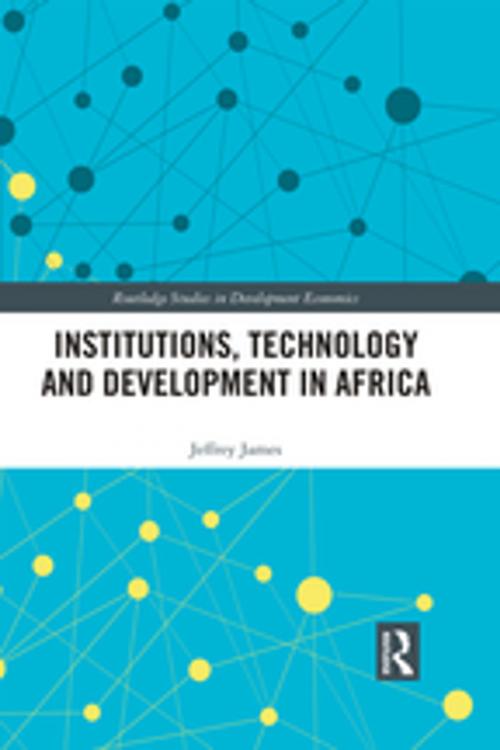Institutions, Technology and Development in Africa
Business & Finance, Economics, Economic Development| Author: | Jeffrey James | ISBN: | 9781351001908 |
| Publisher: | Taylor and Francis | Publication: | December 7, 2018 |
| Imprint: | Routledge | Language: | English |
| Author: | Jeffrey James |
| ISBN: | 9781351001908 |
| Publisher: | Taylor and Francis |
| Publication: | December 7, 2018 |
| Imprint: | Routledge |
| Language: | English |
An extensive literature has demonstrated that technologies in sub-Saharan Africa are largely inappropriate: that is, that they are typically capital- and import-intensive rather than labour- and local input-intensive. These technologies have created a pattern of development that is highly unequal, with widespread unemployment and under-employment. In this literature, however, relatively little attention has been paid to the institutions that govern the generation, adoption and use of technology.
This book draws on historical analysis and case studies to evaluate how institutions in different countries, including those in Africa itself, generate technologies that vary in their characteristics and suitability for the region. Through these case studies, insight is gained into the characteristics of ‘appropriate’ institutions that might underlie a more balanced pattern of technology and development than currently exists. The findings of the book clearly confirm a major tenet of institutionalist theory: namely, that institutions developed in one set of circumstances are unlikely to be appropriate to conditions in a markedly different set.
This book will be of interest to economists, social historians and anyone with an interest in modern African development.
An extensive literature has demonstrated that technologies in sub-Saharan Africa are largely inappropriate: that is, that they are typically capital- and import-intensive rather than labour- and local input-intensive. These technologies have created a pattern of development that is highly unequal, with widespread unemployment and under-employment. In this literature, however, relatively little attention has been paid to the institutions that govern the generation, adoption and use of technology.
This book draws on historical analysis and case studies to evaluate how institutions in different countries, including those in Africa itself, generate technologies that vary in their characteristics and suitability for the region. Through these case studies, insight is gained into the characteristics of ‘appropriate’ institutions that might underlie a more balanced pattern of technology and development than currently exists. The findings of the book clearly confirm a major tenet of institutionalist theory: namely, that institutions developed in one set of circumstances are unlikely to be appropriate to conditions in a markedly different set.
This book will be of interest to economists, social historians and anyone with an interest in modern African development.















